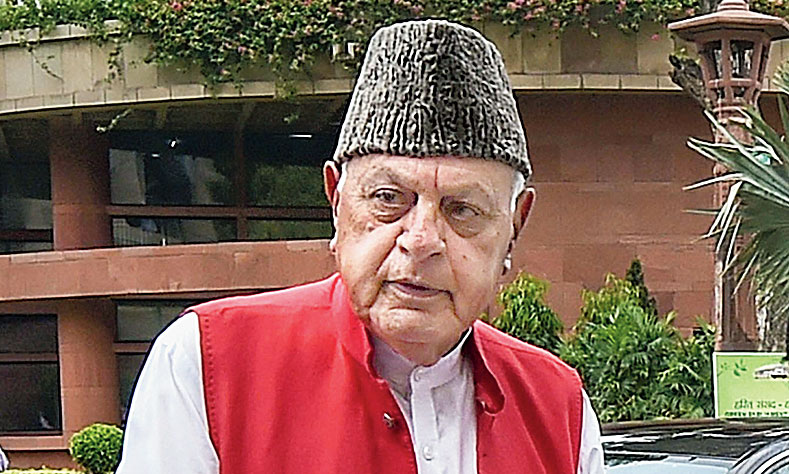MDMK leader Vaiko on Wednesday moved a habeas corpus plea seeking a directive from the Supreme Court to produce before it former Jammu and Kashmir chief minister Farooq Abdullah, said to be under house arrest since the government moved to scrap the state’s special status.
A habeas corpus petition is a legal recourse to bring a person, whose whereabouts are not known, before the Supreme Court or a high court, as the case may be.
In this case, Vaiko has moved the Supreme Court under Article 32 for the enforcement of his and Farooq’s fundamental rights under Article 19(1)(a), which relates to freedom of speech and expression; Article 21 (life and liberty) and Article 22 (protection against illegal arrest or detention).
The petition, filed through advocate Lakshmi Ramamurthy, has not yet been listed for a formal hearing.
Vaiko, in his plea, has said Farooq is scheduled to be in Chennai on September 15 to attend celebrations to mark the birth anniversary of Dravidian movement founder and former Tamil Nadu chief minister C.N. Annadurai.
The Rajya Sabha MP said Farooq had agreed to take part in the celebrations but his participation has become uncertain now.
Farooq has been under house arrest in Srinagar since early August, when the lockdown in the Valley began as the government moved to revoke Kashmir’s special status under Article 370 and split the state into two Union Territories.
Two other former chief ministers — Omar Abdullah and Mehbooba Mufti — are in detention too, as are dozens of other Valley leaders.
Vaiko said he has been organising the annual meet for several years and leaders from across the political spectrum have attended the event in the “spirit of peaceful, democratic” debate and discussion to “strengthen the unity and integrity of India”.
But despite his efforts, the Marumalarchi Dravida Munnetra Kazhagam (MDMK) founder said, he has been unable to contact Farooq.
“The petitioner vide letter dated 29.08.2019, sought permission of the authorities to allow Dr Farooq Abdullah to travel to Chennai, Tamil Nadu, in order to attend the conference in the interests of freedom of speech and in the spirit of encouraging democratic participation,” Vaiko said.
“However, the respondents (the Centre) have failed to reply to the letter/representation, which by implication is a denial of permission. The actions of the respondents are completely illegal and arbitrary and violative of the right to protection of life and personal liberty, right to protection from arrest and detention and also against the right of free speech and expression, which is the cornerstone of a democratic nation.”
The Dravidian leader also contended that the right to free speech and expression allowed “citizens to effectively take part in the governance of the country”.
The petition said the top court had in the past held that any reasonable restriction on the right to freedom of speech and expression should be narrowly tailored and interpreted in order to maintain the spirit of democracy.
“Therefore, the refusal of the respondents to allow Dr Farooq Abdullah to attend the peaceful and democratic conference organised by the petitioner is illegal and arbitrary and violative of Articles 21, 22 and 19(1)(a),” Vaiko said.











